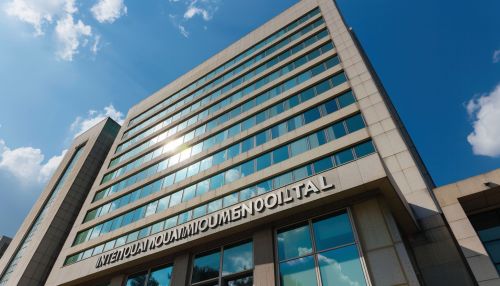International Monetary Fund
Overview
The International Monetary Fund (IMF) is an international organization that was established in 1944 to promote global economic stability and growth. The IMF's primary purpose is to ensure the stability of the international monetary system—the system of exchange rates and international payments that enables countries (and their citizens) to transact with each other. The organization's mandate has evolved over the years, and it now plays a central role in the management of balance of payments difficulties and international financial crises.


History
The IMF was conceived in July 1944 during the United Nations Monetary and Financial Conference, also known as the Bretton Woods Conference. Delegates from 44 countries participated in the conference, where they agreed on a framework for international economic cooperation after World War II, aimed at avoiding the destructive protectionist policies that had contributed to the Great Depression.
Structure and Governance
The IMF is governed by its member countries, through a complex structure that involves a variety of executive boards, committees, and voting systems. The highest decision-making body of the IMF is the Board of Governors, which consists of one governor and one alternate governor from each member country, usually the top officials from the finance ministry or central bank.
Functions
The IMF's functions are primarily carried out through surveillance, financial assistance, and technical assistance. Surveillance involves the monitoring of economic and financial developments, and the provision of policy advice, aimed especially at crisis-prevention. The IMF also lends funds to member countries experiencing balance-of-payments problems, to prevent crises that could have damaging effects on the global economy. Technical assistance is provided to member countries to help them build the expertise and institutions they need to implement sound economic policies.
Criticisms and Controversies
Despite its pivotal role in the global economy, the IMF has been the subject of various criticisms and controversies. Critics argue that the conditions the IMF imposes on countries seeking its financial assistance are often too harsh, leading to negative effects on the social sector, particularly in health and education. Others claim that the IMF's policies often favor the developed world and exacerbate income inequalities.
